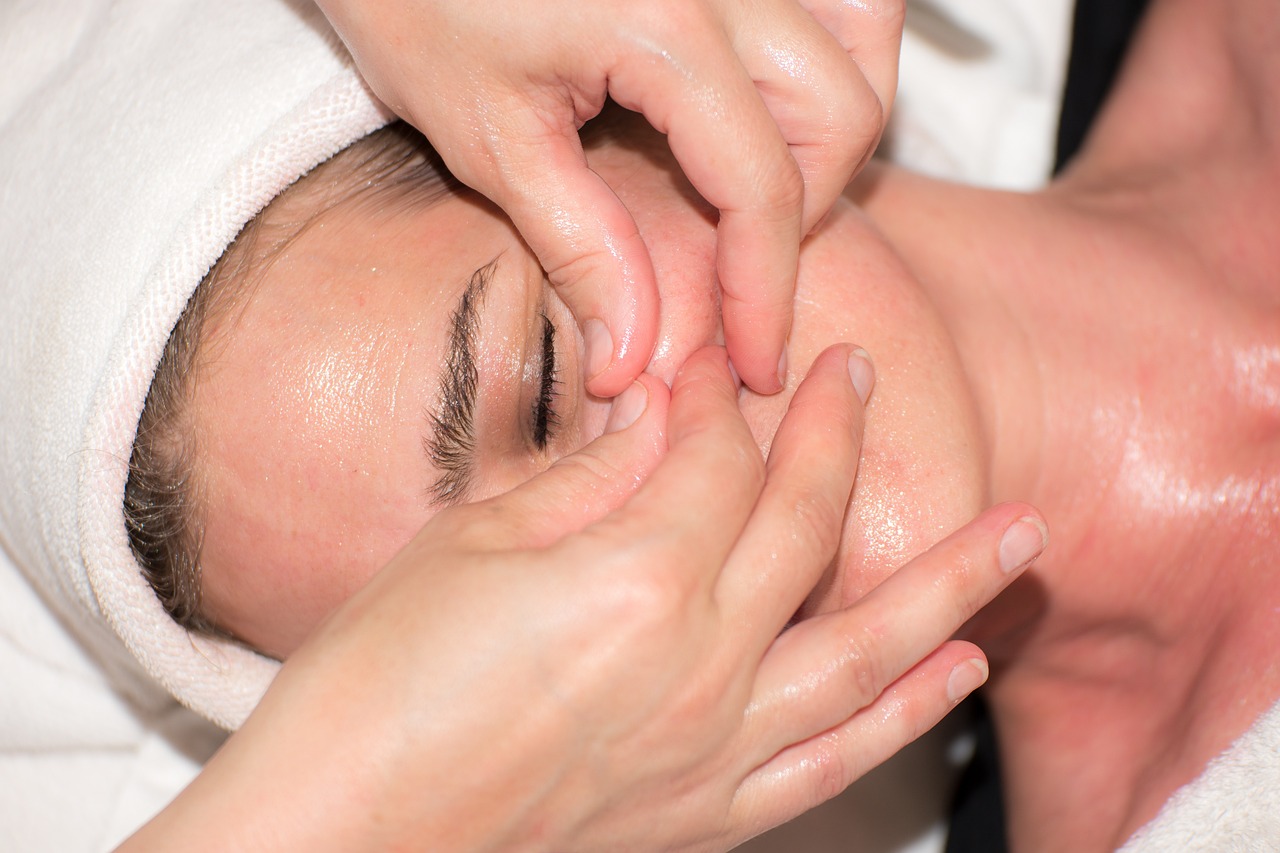Introduction to Skin Hydration
Maintaining optimal skin hydration is essential for overall skin health. Proper moisture levels contribute to the skin’s ability to function as a robust barrier against environmental stressors, safeguarding it against dryness, irritation, and the signs of premature aging. Hydrated skin is more resilient and adaptive, appearing smoother, suppler, and more radiant.
The skin, our largest organ, constantly interacts with the external environment. This exposure can lead to moisture loss, making hydration pivotal to preserving skin integrity. Adequate hydration enhances cell function, aids in the repair processes, and supports a balanced skin microbiome. Conversely, insufficient hydration can result in compromised skin barrier function, leading to discomfort, visible dryness, and increased susceptibility to irritants and pathogens.
Furthermore, aging inevitably affects the skin’s ability to retain moisture. As we age, natural hyaluronic acid levels decline, reducing the skin’s capacity to hold water. This decrease can exacerbate dryness, fine lines, and wrinkles, making proactive hydration maintenance even more critical. A well-hydrated skin barrier can significantly delay these aging signs, preserving youthfulness for longer.
While topical moisturizers are key in supporting skin hydration, dietary supplements can augment these efforts from within. These supplements can provide hydrating ingredients that are sometimes challenging to deliver solely through external application. The upcoming sections will delve into various hydration heroes – supplements known to boost skin moisture – showcasing how they can complement topical treatments to achieve optimal skin hydration and health.
Understanding Hydration from Within
Effective skin hydration extends beyond external applications like topical creams and serums. Internal hydration, which emphasizes maintaining moisture levels from within the body, plays a critical role in achieving optimal skin health. The body’s overall hydration status directly impacts the skin’s appearance and vitality, highlighting the importance of a holistic approach. Hydration heroes like certain supplements can help boost skin moisture from the inside out, complementing traditional skincare routines.
The skin, which is the body’s largest organ, relies heavily on adequate water intake to maintain its elasticity, plumpness, and overall health. When the body is properly hydrated, the skin is more likely to appear smooth and radiant. Conversely, dehydration can lead to dryness, sagging, and a lackluster complexion. Thus, while external skincare treatments provide necessary surface-level benefits, they may fall short if not accompanied by internal hydration strategies.
Integrating hydration-boosting supplements into your daily routine can support overall fluid balance and enhance the skin’s moisture levels. Ingredients such as hyaluronic acid, omega-3 fatty acids, and certain vitamins and minerals work internally to retain moisture and improve skin barrier function. Hyaluronic acid, for instance, is renowned for its capacity to retain water, delivering elasticity and hydration to the skin. Omega-3 fatty acids, found in fish oil supplements, strengthen cell membranes, resulting in better moisture retention. Vitamins like Vitamin E and Vitamin C are potent antioxidants that protect the skin from oxidative stress, which can deplete hydration levels.
Overall, achieving optimal skin moisture necessitates a balanced approach that encompasses both external protection and internal nourishment. By addressing hydration from within, individuals can foster more resilient, well-moisturized skin. Just as staying hydrated with water is essential for bodily functions, utilizing hydration-focused supplements ensures that skin receives the necessary internal support to stay hydrated, vibrant, and healthy.

Key Vitamins for Hydrated Skin
Proper skin hydration is not solely about drinking enough water; it also involves ensuring an adequate intake of key vitamins that significantly contribute to maintaining skin moisture. These hydration heroes include essential vitamins such as Vitamin A, Vitamin C, and Vitamin E, each playing a distinctive role in preserving skin hydration and overall health.
Vitamin A, particularly in the form of retinoids and carotenoids, is crucial for maintaining and repairing skin tissue. It stimulates the production of collagen, which helps the skin retain its firmness and hydration. Additionally, Vitamin A possesses antioxidant properties that combat free radical damage, effectively protecting the skin from environmental stressors that can lead to moisture loss.
Vitamin C, a powerful antioxidant, is vital in the synthesis of collagen, supporting skin structure and elasticity. By strengthening the skin’s barrier function, Vitamin C reduces transepidermal water loss, ensuring that the skin retains moisture more effectively. Its antioxidant capacity also provides a shield against oxidative stress from UV exposure and pollution, both of which can deplete skin hydration.
Vitamin E is renowned for its excellent moisturizing properties, making it a cornerstone for hydrated skin. As a fat-soluble antioxidant, Vitamin E protects cell membranes from oxidative damage, reinforcing the skin’s natural barrier. This reinforcement keeps the skin’s moisture levels balanced and prevents dryness. Furthermore, Vitamin E’s anti-inflammatory properties help soothe skin and reduce irritation, which can otherwise lead to moisture loss.
Incorporating these key vitamins into one’s diet or through supplementation can significantly enhance skin hydration levels, providing a more supple, radiant appearance. By leveraging the antioxidant properties of Vitamin A, Vitamin C, and Vitamin E, one can better defend against environmental aggressors and help the skin maintain its vital moisture balance.
Essential Fatty Acids for Skin Moisture
Essential fatty acids, particularly omega-3 and omega-6, are paramount in maintaining optimal skin hydration. These fatty acids contribute significantly to the skin’s lipid barrier, ensuring it remains resilient against environmental stressors and moisture loss. The lipid barrier, composed of ceramides, cholesterol, and fatty acids, functions as a crucial protective shield, locking in moisture and preventing the skin from becoming dry and irritated.
Omega-3 fatty acids, predominantly found in fish oil, flaxseed oil, and chia seeds, exhibit potent anti-inflammatory properties that help soothe irritated skin and reduce redness. Omega-6 fatty acids, which are more readily available in the diet through sources like evening primrose oil, borage oil, hemp seeds, and walnuts, serve as essential building blocks for the skin’s structure. These fatty acids not only bolster the skin’s hydration but also improve its elasticity and overall health.
To enhance your skin’s moisture levels, incorporating foods rich in omega-3 and omega-6 into your diet is highly recommended. Fatty fish such as salmon, mackerel, and sardines are excellent sources of omega-3 fatty acids. For plant-based alternatives, flaxseeds, chia seeds, and walnuts can be particularly beneficial. On the other hand, omega-6 fatty acids can be obtained from sunflower seeds, pumpkin seeds, and most vegetable oils.
In addition to dietary adjustments, supplements like fish oil capsules, flaxseed oil, and evening primrose oil can be effective hydration heroes. These supplements ensure you receive a consistent and adequate intake of essential fatty acids, especially if your diet falls short. Regular consumption aligns with achieving long-term skin hydration and maintaining a healthy complexion.
In conclusion, the integration of essential fatty acids, both through diet and supplements, plays a vital role in boosting skin moisture. By fortifying the skin’s lipid barrier, they help sustain skin hydration, enhance its resilience, and prevent moisture loss, thereby contributing to a glowing, healthy appearance.
Hyaluronic Acid: The Hydration Powerhouse
Hyaluronic acid plays a crucial role in maintaining skin hydration and is often hailed as one of the most effective substances in boosting and retaining skin moisture. This naturally occurring molecule is primarily found in connective tissues throughout the human body, particularly in the skin, eyes, and joints. Its primary function is to retain water, thus keeping tissues well-lubricated and moist.
The mechanism through which hyaluronic acid operates is truly fascinating. It can bind to water molecules up to 1000 times its weight, making it an unparalleled hydration hero. This binding capability allows hyaluronic acid to form a viscoelastic gel that provides the skin with volume, fills the spaces between cells, and promotes a plump, youthful appearance. Furthermore, it stabilizes moisture content and combats dryness and dehydration, indispensable attributes for skin health.
However, the body’s natural production of hyaluronic acid diminishes with age. Starting in our late 20s and accelerating in subsequent decades, this decline can lead to the gradual loss of skin elasticity and moisture, resulting in common signs of aging like wrinkles and sagging skin. Environmental factors such as UV exposure and pollution also contribute to the degradation of hyaluronic acid levels in the skin.
This is where hyaluronic acid supplements come into play. By introducing these supplements into one’s daily routine, it is possible to mitigate the effects of diminished natural production. These supplements replenish the skin’s hyaluronic acid levels, reinforcing its ability to retain moisture and enhance elasticity. Consistent use of hyaluronic acid supplements has been shown to significantly improve hydration, reduce the appearance of fine lines and wrinkles, and support overall skin health.
Whether taken orally, applied topically, or integrated through diet, hyaluronic acid is an irreplaceable asset in any skincare regimen aimed at maintaining hydrated, youthful skin. Thus, it firmly stands as a powerhouse in the lineup of hydration heroes: supplements that boost skin moisture.
Collagen Supplements for Hydrated Skin
Collagen, a vital protein that constitutes nearly 75% of our skin structure, plays a significant role in preserving skin hydration and elasticity. As we age, collagen production naturally declines, leading to drier and less firm skin. This decline can be counteracted with collagen supplements, which have gained widespread popularity for their ability to support skin health from within.
Collagen supplements, typically derived from animal sources like bovine and marine collagen, are rich in amino acids such as glycine, proline, and hydroxyproline. These amino acids are essential for maintaining the skin’s structural integrity and enhancing its moisture-retention capacity. By providing the building blocks needed for collagen synthesis, these supplements help to restore the skin’s natural hydration levels.
Several studies support the efficacy of collagen supplements in improving skin hydration. For instance, a study published in the Journal of Cosmetic Dermatology found that participants who took collagen supplements experienced significant improvements in skin hydration compared to a placebo group. The study also noted enhancements in skin elasticity and a reduction in the appearance of fine lines and wrinkles, highlighting the multifaceted benefits of collagen supplementation.
Moreover, collagen supplements are often combined with other beneficial ingredients such as hyaluronic acid, vitamins, and antioxidants, creating a synergistic effect that enhances their hydration properties. These additional components work in harmony to further improve the skin’s moisture retention and overall health, making collagen supplements a comprehensive solution for maintaining youthful, hydrated skin.
Incorporating collagen supplements into your daily routine can significantly impact your skin’s hydration levels. They are available in various forms, including powders, capsules, and liquid shots, allowing for versatile and convenient consumption. By consistently using collagen supplements, you can support your skin’s natural moisture barrier, enhance elasticity, and achieve a more radiant, hydrated complexion.
Antioxidants for Skin Moisture
Antioxidants are essential in the realm of skin hydration, playing a critical role in maintaining and boosting skin moisture. These powerful compounds work by neutralizing free radicals, which are unstable molecules that can damage skin cells and lead to moisture loss. By incorporating antioxidant-rich supplements into your skincare routine, you can protect your skin from oxidative stress and enhance its ability to retain moisture.
Vitamin C, a potent antioxidant, is renowned for its ability to boost skin hydration. It aids in collagen synthesis, strengthening the skin’s structural foundation and improving its moisture-retention capacity. Additionally, Vitamin C helps to neutralize free radicals caused by UV exposure and pollution, which can deplete the skin’s natural hydration levels. Regular intake of Vitamin C supplements can result in a brighter, more hydrated complexion.
Vitamin E is another powerful antioxidant that plays a crucial role in skin hydration. It protects cell membranes from oxidative damage, ensuring the skin’s barrier function remains intact. This, in turn, helps the skin retain moisture and prevents dryness. Vitamin E also has anti-inflammatory properties, soothing irritated skin and reducing the risk of moisture loss. Incorporating Vitamin E supplements into your daily regimen can significantly enhance your skin’s hydration and overall health.
Coenzyme Q10 (CoQ10) is a lesser-known but highly effective antioxidant that supports skin hydration. It is naturally present in the body and plays a key role in energy production within cells. As an antioxidant, CoQ10 helps to protect the skin from oxidative damage and supports the regeneration of other antioxidants, such as Vitamin C and Vitamin E. By boosting the skin’s antioxidant defenses, CoQ10 supplements can enhance moisture retention and improve skin texture.
Polyphenols, found in various fruits, vegetables, and teas, are another group of antioxidants that contribute to skin hydration. These compounds help to protect the skin from environmental stressors and reduce inflammation, which can lead to moisture loss. Green tea extract, for example, is rich in polyphenols and has been shown to improve skin hydration and elasticity. Incorporating polyphenol-rich supplements into your diet can support overall skin health and maintain optimal moisture levels.
In conclusion, antioxidants are indispensable for maintaining skin hydration. By neutralizing free radicals and protecting the skin from oxidative stress, they help to preserve the skin’s natural moisture balance. Incorporating antioxidant-rich supplements, such as Vitamin C, Vitamin E, CoQ10, and polyphenols, into your skincare routine can significantly enhance skin hydration, resulting in a healthier, more radiant complexion.
Probiotics and Skin Hydration
Probiotics, commonly known for their benefits to gut health, also play a pivotal role in maintaining skin hydration. The gut-skin axis, a concept gaining traction in scientific communities, emphasizes the connection between gut health and skin health. By promoting a balanced gut microbiome, probiotics can enhance overall skin health, including its moisture levels.
Lactobacillus and Bifidobacterium are two of the most widely studied probiotic strains with proven benefits for skin hydration. These strains help to strengthen the skin’s natural barrier function, preventing moisture loss and protecting against environmental stressors. Research has shown that these probiotics can improve skin hydration and reduce transepidermal water loss (TEWL), a key indicator of skin moisture retention.
In addition to improving skin barrier function, probiotics also have anti-inflammatory properties that can soothe irritated skin and prevent moisture loss. By reducing inflammation, probiotics help to maintain a balanced and healthy skin microbiome, which is essential for optimal hydration. Incorporating probiotic supplements into your daily routine can lead to improved skin moisture levels and a more resilient complexion.
Probiotics can be found in various forms, including capsules, powders, and fermented foods such as yogurt, kefir, and sauerkraut. When choosing a probiotic supplement, it’s essential to select one that contains a diverse range of strains and a high CFU (colony-forming units) count to ensure maximum benefits for skin hydration.
In conclusion, probiotics play a significant role in maintaining skin hydration by supporting a balanced gut microbiome and strengthening the skin’s natural barrier function. Incorporating probiotic supplements or probiotic-rich foods into your daily routine can lead to improved skin moisture levels, reduced inflammation, and a healthier, more resilient complexion. By leveraging the power of probiotics, you can achieve and maintain optimal skin hydration from within.
Conclusion: Embracing Hydration Heroes
Achieving and maintaining optimal skin hydration is a multifaceted endeavor that extends beyond the application of topical products. Embracing a holistic approach that includes hydration-boosting supplements can significantly enhance skin moisture levels, leading to a healthier, more radiant complexion. Hydration heroes such as key vitamins, essential fatty acids, hyaluronic acid, collagen, antioxidants, and probiotics work synergistically to support the skin’s natural barrier function, reduce moisture loss, and combat the effects of aging.
Incorporating these supplements into your daily routine can provide long-lasting benefits for your skin’s hydration and overall health. By addressing hydration from within, you can complement your external skincare efforts and achieve a more comprehensive and effective approach to skin hydration. Embrace these hydration heroes and unlock the potential for a glowing, supple, and youthful complexion.

References:
- Journal of Cosmetic Dermatology: Study on collagen supplements and skin hydration.
- Nutrition Reviews: Overview of the benefits of hyaluronic acid supplementation.
- Journal of Clinical and Aesthetic Dermatology: Research on probiotics and skin hydration.
- The American Journal of Clinical Nutrition: Study on the role of omega-3 fatty acids in skin health.
- Journal of the American Academy of Dermatology: Review on the impact of vitamins on skin hydration.




